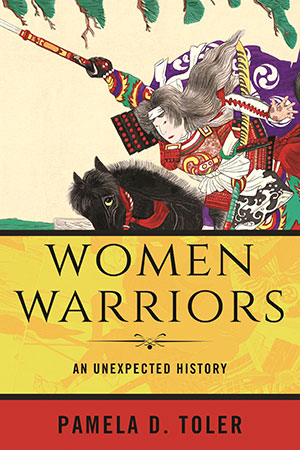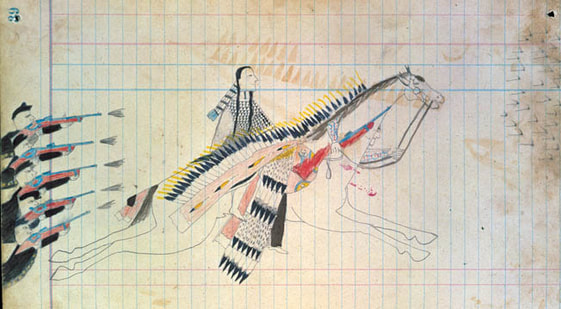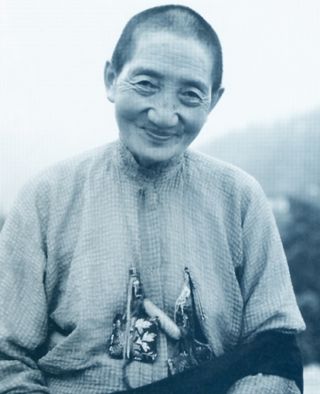|
Have women always been warriors? And why does it matter anyway? That's the question we take up today with the help of a "brilliant storyteller." That's what reviews say about Pamela D. Toler, PhD and her recent book Women Warriors: An Unexpected History. From the time she was young, Pamela sought out stories of "smart/courageous/quirky/energetic girl protagonists and the few biographies of women that reached [her] elementary school library." Today the author has a PhD in history, and is praised for her rigorous research and accessible writing. Her books are for nerdy or inquisitive teens and thinking adults. (That's you, right?) Much thanks to Pamela D. Toler for taking time from her writing, teaching and speaking to answer my questions about her book Women Warriors. It's gotten great reviews and is on my stack to read. "Like a lot of young girls," Pamela Toler says, "I was hungry for role models that told me it was okay to be smart, mouthy, opinionated, or different. Looking at women warriors as role models, whether they are historical or fictional, takes that one step further. They're not just smart, they're strong. They're not just opinionated, they're brave. I think one reason so many young girls are fascinated by Joan of Arc is that she was a teenage girl who made powerful people listen to her. That's heady stuff if you feel like you can't make yourself heard." Women Warriors is a global history, looking at women from many different times, places and cultures, from the second millennium BCE to the day before yesterday. “Toler blows past all expectations with this thoroughly delightful, personable, and crucially important history of women warriors.” —Library Journal, Starred Review Pamela organized the book according to the reasons women have historically taken up arms and how those reasons related to women's roles in society. For example, Pamela says, "In my first chapter I looked at cultural assumptions that set up mother and warrior as biologically ordained opposites, and then looked at a number of women who went to war not in spite of being mothers but because they were mothers." A few of the women covered in the book:
Exploring these women fighters was fascinating for Pamela, and part of her interest sprang from the fact she found it hard to identify with most of them. But certain dynamics in their lives felt all too familiar. Such as the experience of Lemdha Pachen, a Tibetan nun who inherited the position of Clan Chieftain from her father. In 1959, Pachen led six hundred resistance fighters from her clan into the mountains on horseback, armed with guns and swords to battle Chinese invaders. Before his death, her father had prepared her for the responsibility of leading the clan. He trained her to shoot a rifle and invited her to defense meetings with other local leaders. She noticed the others looked at her "with a mixture of curiosity, disbelief, and dismay on their faces, as if they thought their meetings were no place for a woman." Pamela says, "Thirty years later I sat in meetings where I was the only woman at the table and saw very similar looks on the faces of the men in the room. The stakes were much lower, but the reception was he same." Pamela hopes her book has an impact helping broaden people's perspective of history. She says the evidence that women have always been warriors challenges very basic ideas about women and men.
For much of history, the dominant images of war, and consequently of peace, have been gender-based. War has been considered men's business. As a result, if men are seen as warriors then women are by definition "not-warriors." Accepting the reality of historical women warriors as more than an occasional exception challenges the patriarchal norm at a fundamental level. Women have always fought, Pamela concludes, not in spite of being women, but because they are women. You might remember when I spoke with Pamela about her book The Heroines of Mercy Street. Not the TV series, but real nurses of the Civil War. I told her I tend to be queasy, but she assured me the book touches lightly on the blood and gore of battle wounds, and focuses on the doggedness of the women nurses. Doggedness they sorely needed because the doctors didn't want their help. Who Won the Civil War Battle Between the Doctors and Nurses? Comments are closed.
|
I'm fascinated to discover little-known history, stories of people and events that provide a new perspective on why and how things happened, new voices that haven't been heard, insight into how the past brought us here today, and how it might guide us to a better future.
I also post here about my books and feature other authors and their books on compelling and important historical topics. Occasionally, I share what makes me happy, pictures of my garden, recipes I've made, events I've attended, people I've met. I'm always happy to hear from readers in the blog comments, by email or social media. Archives
September 2023
Categories
All
|




